7 tips for an arthritis-friendly home
Ease pain, avoid falls and increase maneuverability with these DIY strategies.

From hard-to-open jars to dimly lit staircases, almost everything in your home is a hazard when you have rheumatoid arthritis (RA). That's why it pays to alter your environment, optimizing your living space to prevent falls, ease pain and increase maneuverability.
Bigger fixes like installing chairlifts and constructing ramps can help movement, but they require more than… Show More
From hard-to-open jars to dimly lit staircases, almost everything in your home is a hazard when you have rheumatoid arthritis (RA). That's why it pays to alter your environment, optimizing your living space to prevent falls, ease pain and increase maneuverability.
Bigger fixes like installing chairlifts and constructing ramps can help movement, but they require more than a little time and money. Smaller solutions like the following are speedier, less expensive and can be made today, either alone or with the help of loved ones.
Read on for our tips, plus additional resources for creating an arthritis-friendly lifestyle.
Medically reviewed in April 2020.
Show Less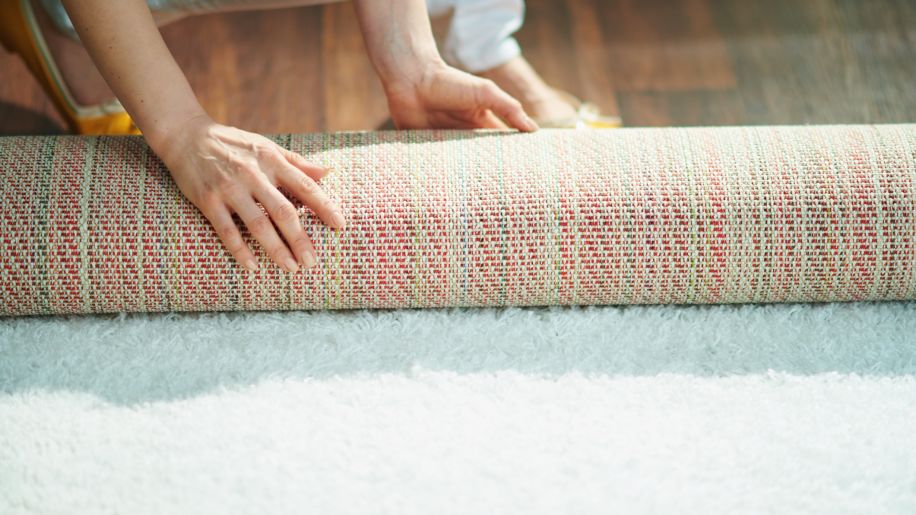
Make a path
People with RA have a higher risk of falls, and the worse your RA, the more likely you are to take a tumble. That's why it's important to declutter, keep walkways clear and rearrange furniture to make moving from room to room as easy as possible.
Begin by clearing your floors of tripping dangers:… Show More
People with RA have a higher risk of falls, and the worse your RA, the more likely you are to take a tumble. That's why it's important to declutter, keep walkways clear and rearrange furniture to make moving from room to room as easy as possible.
Begin by clearing your floors of tripping dangers: small area rugs, bathmats without rubber backing, wires and low furniture like ottomans and magazine racks. Outdoors, clean up yard tools, toys and gardening supplies. Then, reposition chairs and tables to ensure heavily used paths—like kitchen to living room, bedroom to bathroom—are free of obstacles. Marking off steps and thresholds with reflective tape is another good idea.
Show Less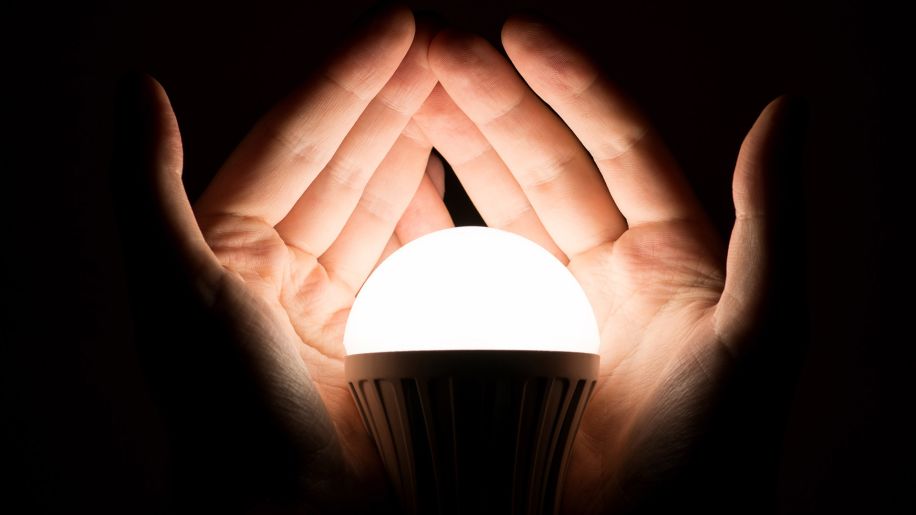
Light it up
Having a clear visual of your environment is crucial to navigating obstacles and avoiding injury. That's why people with RA should prioritize good lighting, and make absolutely sure dark paths and corners are lit, inside and out—especially around stairs and landings. Nightlights and touch lamps are… Show More
Having a clear visual of your environment is crucial to navigating obstacles and avoiding injury. That's why people with RA should prioritize good lighting, and make absolutely sure dark paths and corners are lit, inside and out—especially around stairs and landings. Nightlights and touch lamps are great for just this purpose, but remote-controlled lights, motion lighting and dimmer switches are easy on arthritic fingers, and can be installed in a few hours by a handyman. Finally, bring in natural light whenever possible. To make this easier on your hands, choose cordless blinds, shades and drapes that can be lifted open or pulled aside.
Show Less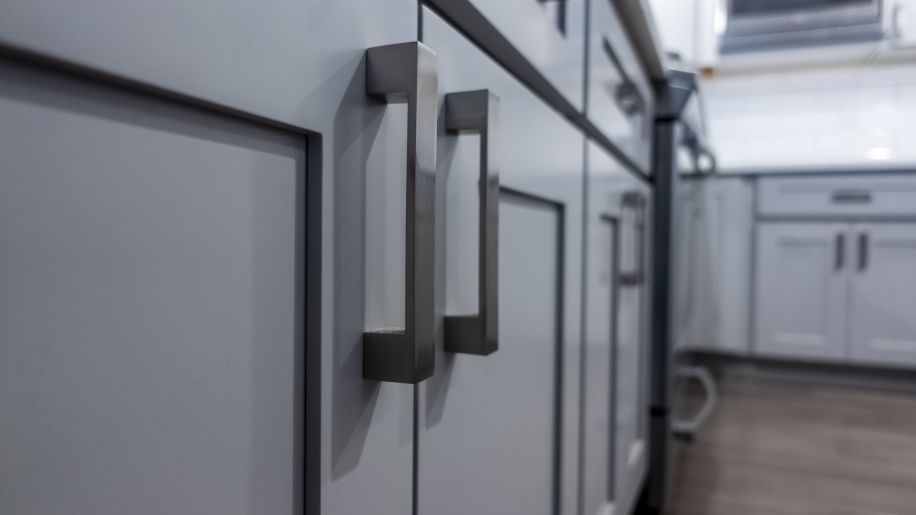
Get a handle on things
Hand and wrist issues affect two-thirds of people with RA, making knobs and screw-top containers especially hard to operate. Alternately, things like levers, handles, pumps and push-button lids provide comparatively comfortable ways of opening everything from cabinet doors to jars of jam.
So, go… Show More
Hand and wrist issues affect two-thirds of people with RA, making knobs and screw-top containers especially hard to operate. Alternately, things like levers, handles, pumps and push-button lids provide comparatively comfortable ways of opening everything from cabinet doors to jars of jam.
So, go through your home and take note of what can be replaced; swapping out doorknobs for d-shaped handles is a good start. Look for everyday items like shampoo bottles and toothpaste, which can be purchased in pump-action bottles. Consider switching old appliances with dials, like irons, with new ones with big buttons.
Show Less
Keep your stuff on the level
To reduce strain and the potential for injury, place oft-used items where you can reach them: between hip and shoulder height at the fronts of counters, cabinets and closets. Daily-use items should get priority; toiletries can live in a basket on your bathroom counter, keys can hang on a hook by… Show More
To reduce strain and the potential for injury, place oft-used items where you can reach them: between hip and shoulder height at the fronts of counters, cabinets and closets. Daily-use items should get priority; toiletries can live in a basket on your bathroom counter, keys can hang on a hook by the door and your favorite dish set can have its own special shelf. If space is an issue, install lazy Susans and stash seasonal gear like holiday platters and beach towels—a.k.a. stuff you don't need right now—under beds and in bottom drawers.
P.S. Remember: Weight matters. Don't store substantial items on high shelves, and replace heavy equipment like pots with lighter versions.
Show Less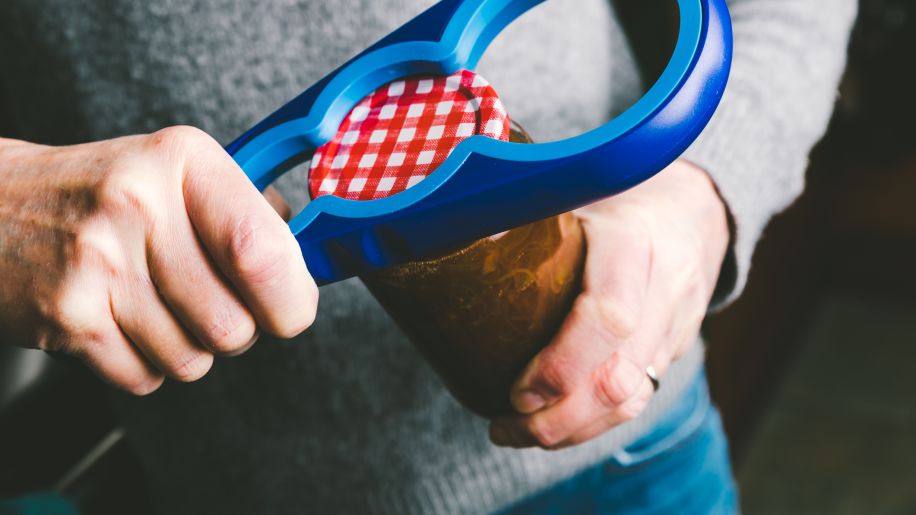
Get gadgety
From zipper pulls to garden gloves, there's a vast array of helpful gadgets made specifically for people with maneuverability issues. Electric can openers are helpful, as are big-buttoned universal remotes, key turners, hand-held shower hoses and anything with a thick, rubbery or extended handle.… Show More
From zipper pulls to garden gloves, there's a vast array of helpful gadgets made specifically for people with maneuverability issues. Electric can openers are helpful, as are big-buttoned universal remotes, key turners, hand-held shower hoses and anything with a thick, rubbery or extended handle. Look for products with the Arthritis Foundation's Ease of Use commendation, which means they've been tested for folks with arthritis.
While you're in the home section, don't forget to check out wheeled bins and carts. They can help you with heavier housework, like loading laundry and hauling dishes from table to counter.
Show Less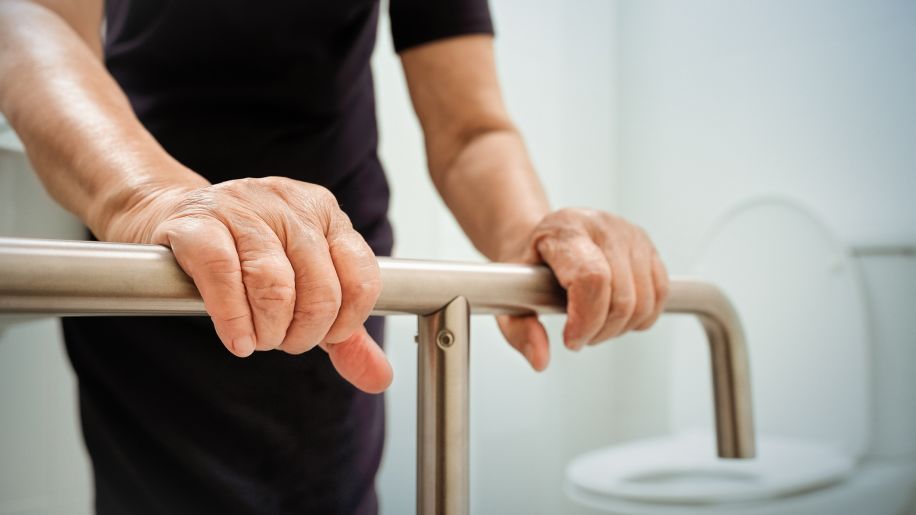
Rise up
While exercise can alleviate some joint stiffness and pain, getting out of beds and chairs can be tough for people with RA, putting extra stress on knees, hips, ankles and hands. To help, place a sturdy chair next to your bed, or buy risers to raise the bed itself and minimize bending. Change extra-… Show More
While exercise can alleviate some joint stiffness and pain, getting out of beds and chairs can be tough for people with RA, putting extra stress on knees, hips, ankles and hands. To help, place a sturdy chair next to your bed, or buy risers to raise the bed itself and minimize bending. Change extra-fluffy couch and chair cushions for firmer seats. In the bathroom, try a raised toilet seat, and consider installing rails for leverage. Railing can also help on stairs, giving you something to help navigate steps and minimize the danger of falling.
Show Less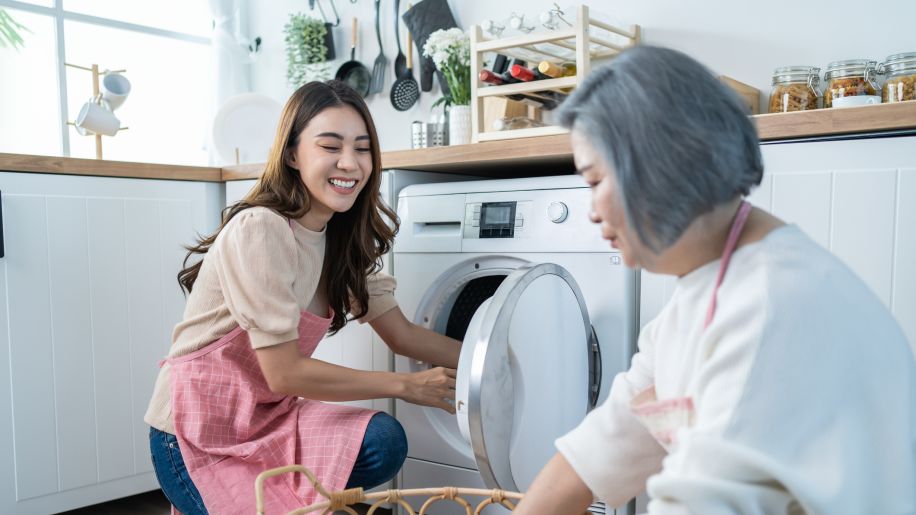
Delegate!
If you can swing it, have other people take on the work you find particularly difficult. Hire housecleaners to come periodically, and ask if they'll do laundry. Enlist a neighborhood kid to mow the lawn or shovel your driveway. Seek out a handyman for small repairs.
Finally, if your RA is worsening,… Show More
If you can swing it, have other people take on the work you find particularly difficult. Hire housecleaners to come periodically, and ask if they'll do laundry. Enlist a neighborhood kid to mow the lawn or shovel your driveway. Seek out a handyman for small repairs.
Finally, if your RA is worsening, start planning for the long-term. Contractors who remodel homes for the disabled can help establish specific needs, like a ramp or chairlift, and work to change your environment. Federal grants from the Department of Housing and Urban Development (HUD), which are managed by state or county governments, can ease costs. For more information, head to HUD's official website.
Show LessFeatured Content
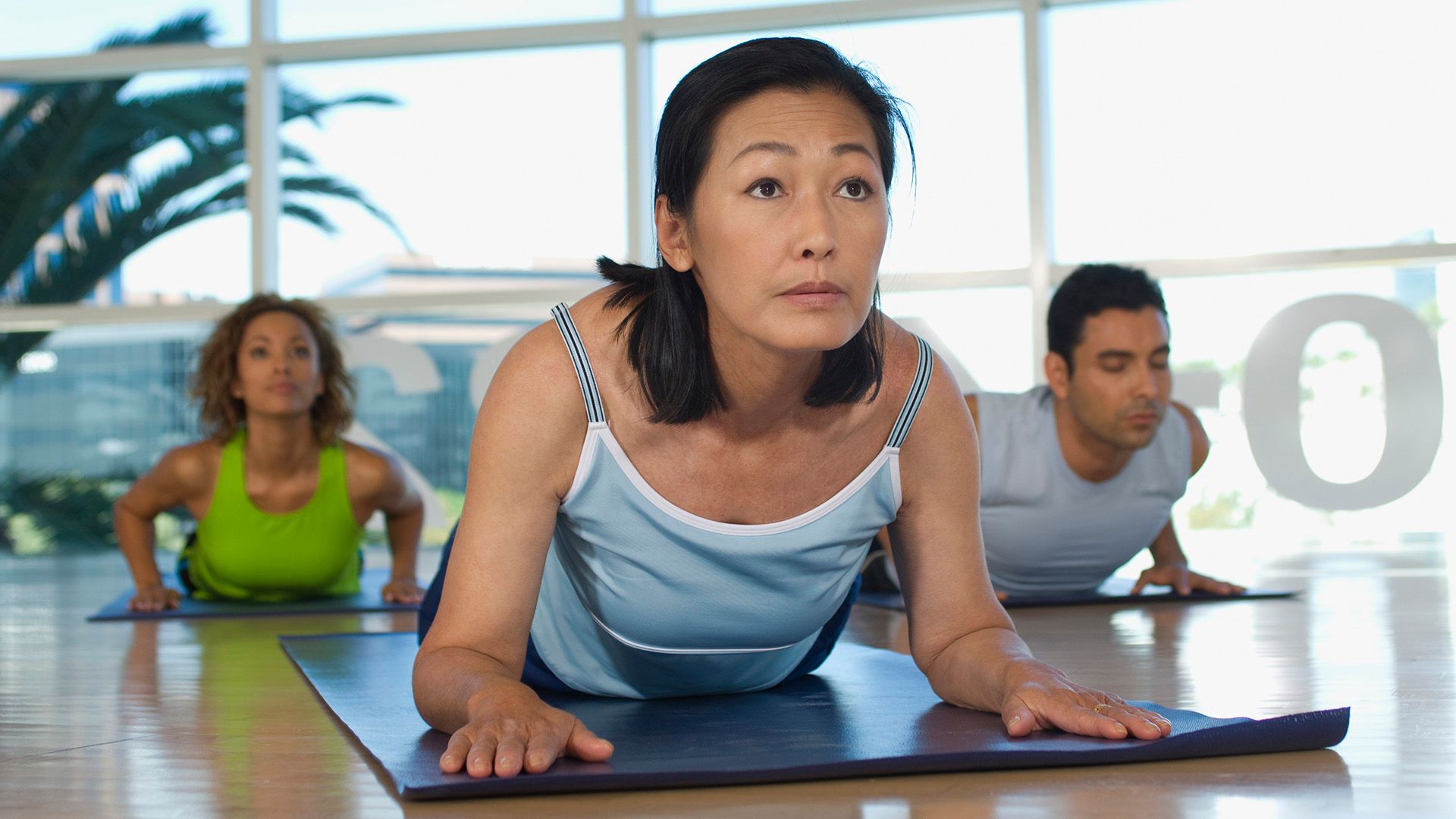
article
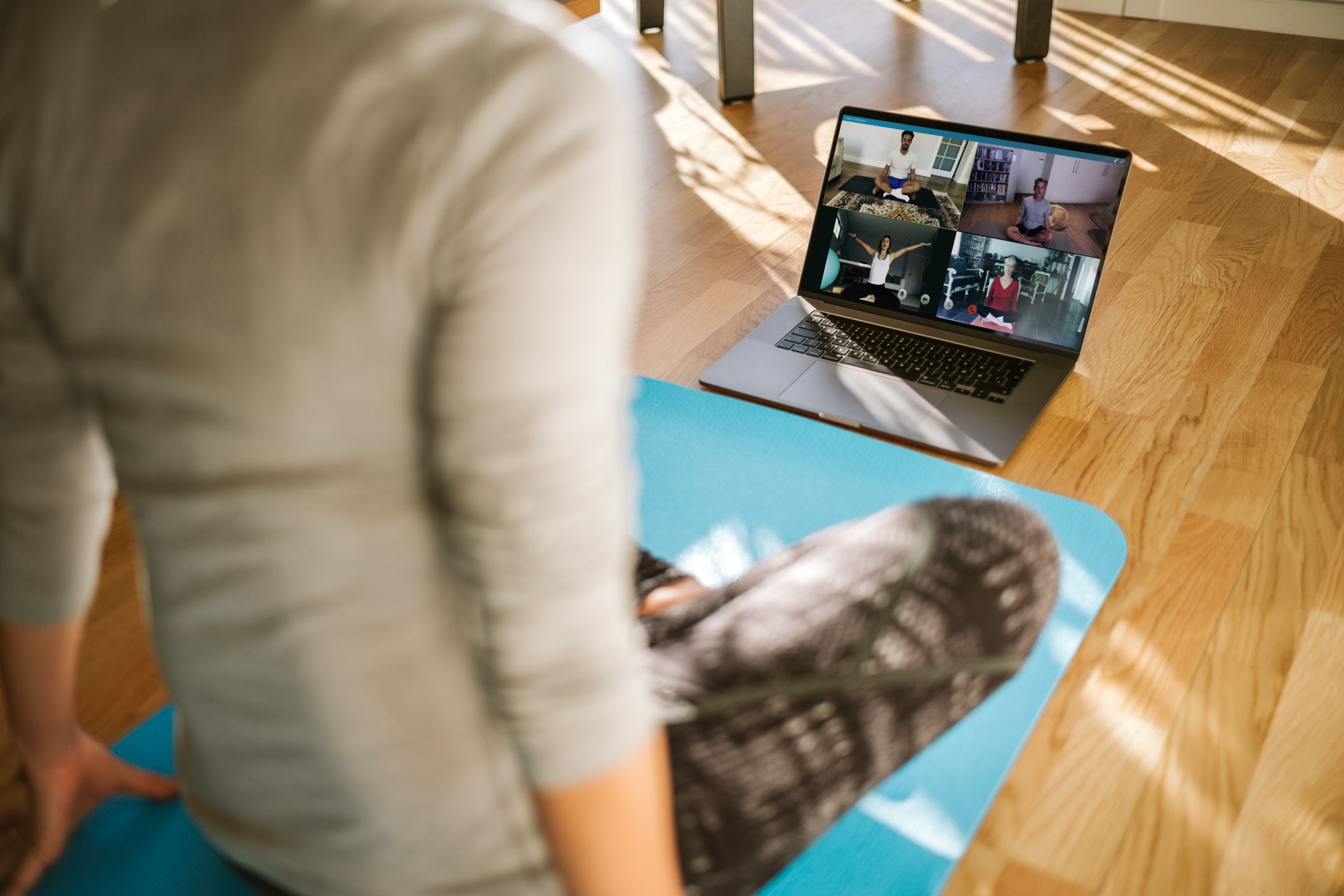
article

slideshow

slideshow
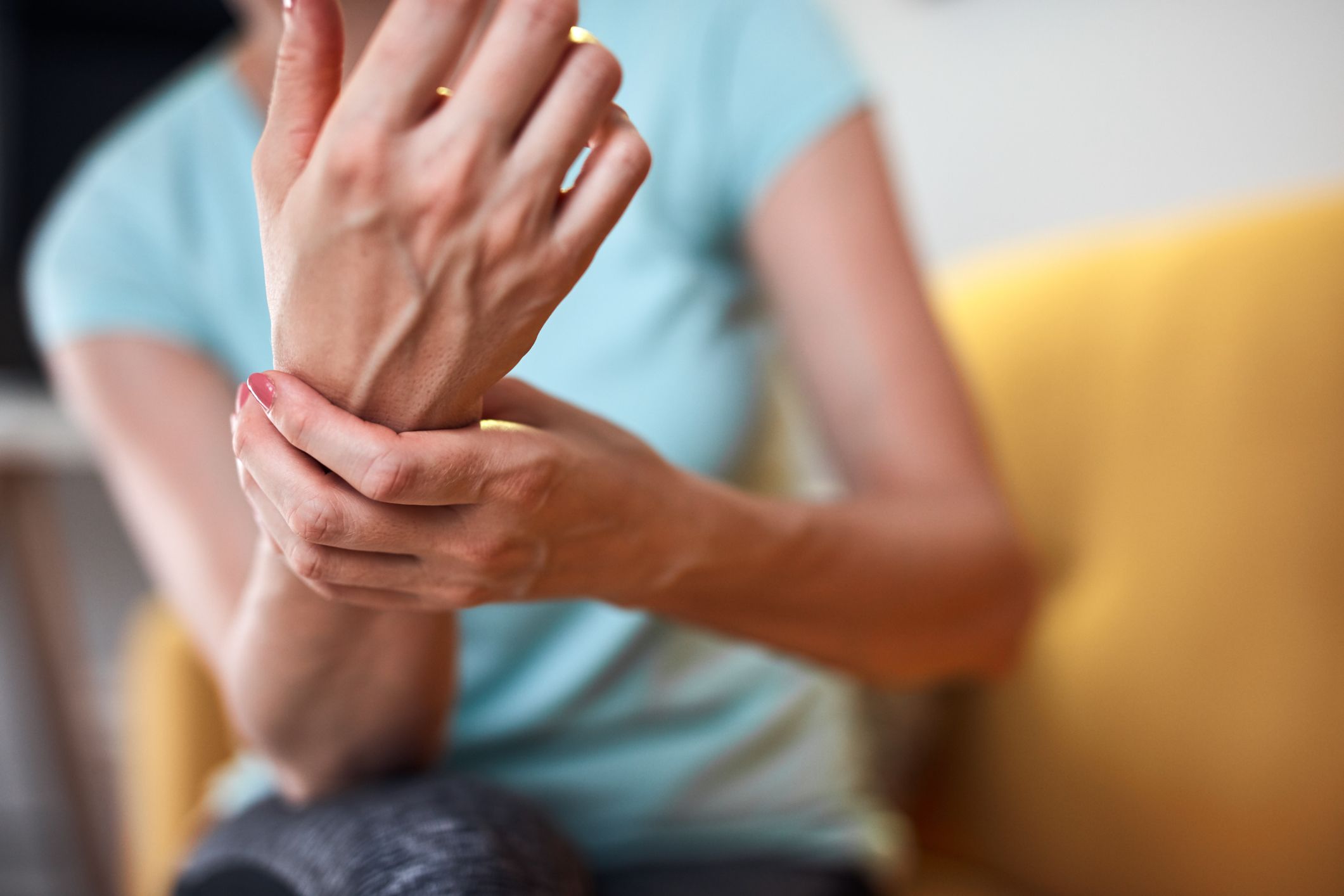
article
